https://www.rt.com/op-ed/423324-russia-china-military-trade-war/
With anti-Russia hysteria rampant, Beijing reminds US about ties between Russian & Chinese forces

Robert Bridge is an American writer and journalist. He is author of the book, 'Midnight in the American Empire,' released in 2013.
[email protected]
Published time: 5 Apr, 2018 17:39 Edited time: 5 Apr, 2018 18:04
Get short URL
FILE PHOTO © Ministry of Defence of the Russian Federation
With both Russia and China bogged down in stormy relations with the US and the West, Beijing and Moscow are beating a path towards deeper bilateral cooperation. And that would include preparations on the military front.
The annual Moscow International Security Conference made a bigger splash than usual this year as Chinese Defense Minister Wei Fenghe offered a much-needed reality check to the West.
"
I am visiting Russia as the new defense minister of China to show the world the high level of development of our bilateral relations and firm determination of our armed forces to strengthen strategic cooperation," Wei
told his Russian counterpart, Sergey Shoigu.
But the Chinese official was just warming up.
"
The Chinese side has come to let the Americans know about the close ties between the Russian and Chinese armed forces of China and Russia, especially in this situation,” he said. “
We’ve come to support you."
Read more
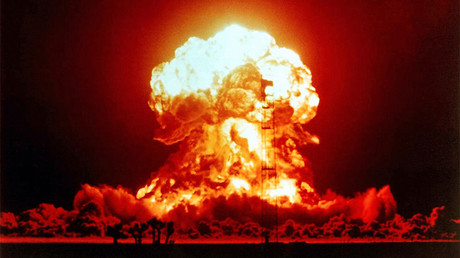 China holding Treasuries ‘nuclear option’ open in trade war with US
China holding Treasuries ‘nuclear option’ open in trade war with US
There were several striking aspects about Wei’s remark that deserve commentary. First, it was no coincidence that he chose Russia as his first visit abroad as the new Chinese defense minister. Ever since the collapse of the Soviet Union in 1991, Moscow and Beijing have enjoyed a rather predictable and pragmatic relationship largely based on economic and strategic concerns. The ‘special relationship’ between the bordering powers got etched in stone, so to speak, with the
signing of the 2014 Strategic Partnership by Vladimir Putin and China’s President Xi Jinping .
“
China and Russia, however, can continue to consolidate and upgrade their relationship short of an alliance,” Carnegie Moscow scholar Dmitri Trenin wrote in his book, ‘Should We Fear Russia?’
Trenin went on to stress that such a partnership would not be based on the US principle of unilateralism, but rather the consensus of multiple players.
“
The Greater Eurasia that they are constructing will not be run from a single center,” Trenin wrote. “
[T]heir continental entente will essentially be aimed at limiting US dominance on the edges of the continent and in the world at large.”
Second, Wei arguably broke with polite Chinese diplomatic protocol, which is typically more reserved in its public assessments, by openly mentioning “
the Americans” with regards to China-Russia military cooperation. This remark suggests a lot about Beijing’s current mood towards Washington and the West, and nothing that could be considered remotely positive.
Finally, by mentioning the “
close ties” between the two countries’ armed forces, Wei delivered a warning shot across the bows of the Western world. Given the current geopolitical realities, which are anything but rosy, the loaded statement should have come as no surprise.
"
China and Russia are developing closer ties not only due to their previous good cooperation but also because of changes in the international environment,” Gao Fei, a professor of Russian studies at the China Foreign Affairs University,
told the Global Times. “
Western countries are putting political pressure on Russia and the US is provoking China into a trade war."
Indeed, in the very same week that the Moscow security conference opened, Washington
announced it would slap some 1,300 Chinese exports with a 25 percent tariff, targeting some $50 billion of China’s US market. Beijing said it would respond to the Trump administration reciprocally, hiking tariffs on a variety of US products.
In any case, the dramatic tit-for-tat between Beijing and Washington may just be dress rehearsal for a big event down the road. Last month, China announced it would start paying for its oil imports with renminbi, or the ‘petroyuan,’ a proposal that certainly raised some eyebrows in the United States, considering that the US dollar has long been the dominant fiat currency for settling oil contracts.
Admittedly, it would probably take years – and possibly never – for the Chinese petroyuan to present a real challenge to the hegemony of the US dollar. At the same time, Beijing certainly has not forgotten the cruel fate that awaited those countries that attempted to bypass the ubiquitous dollar, not least Libya and Iraq.
Although the US would be very hard-pressed to risk a full-blown military confrontation with China over the petroyuan, at the same time it cannot be denied that America’s military presence around China has, in
accordance with the so-called ‘Asia Pivot,’ increased dramatically over the last decade.
Naturally, this massive realignment of US forces towards China’s zone of influence gives Beijing tremendous pause, and has forced Xi to “
further increase China’s military budget, upgrade its military equipment, and reform its army,”
according to the Diplomat.
Certainly not oblivious to NATO’s full court press, China and Russia have been holding joint military drills for over a decade; they began holding naval exercises in 2012, with a first-time joint naval drill occurring in the Baltic Sea in July.
READ MORE: Ships, subs & helicopters: Russia & China kick off massive naval drills near Korean Peninsula
As the New York Times
noted: “
The countries see their budding military partnership as a way to show that they do not stand alone, despite efforts by the West to isolate them over various disputes.”
Meanwhile, smoldering in the background of US-China relations are perennial tensions over North Korea, the reclusive state that has given the US an excuse to ramp up military exercises near Chinese waters, as well as Washington’s relationship with Taiwan, which represents a major flashpoint as far as Beijing is concerned.
Although barely mentioned by Western media, China’s Foreign Ministry last month expressed its “
resolute opposition” as Trump signed non-binding legislation encouraging the US to send officials to Taiwan to meet Taiwanese counterparts, and vice versa.
Read more
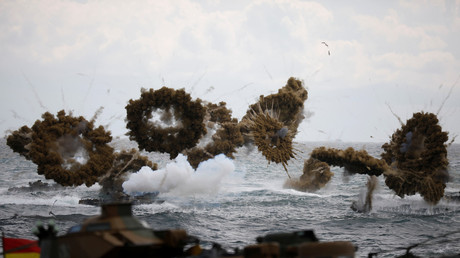 South Korea, US kick off joint military drills after month-long delay
South Korea, US kick off joint military drills after month-long delay
Beijing, which views Taiwan as an integral part of ‘One China,’
warned that any diplomatic initiatives involving the “
wayward province” could result in “
serious harm to Sino-US ties and peace and stability in the Taiwan Strait region.”
Russia can certainly relate to the myriad problems now facing China with regards to deteriorating relations with the West. Following a wave of mass hysteria following the Skripal case in the UK, for example, which is slowly being exposed as yet another anti-Russia farce, a number of Western capitals, never requesting a shred of evidence to indicate Russian involvement, jumped the gun and expelled Russian diplomats from their territory. At the same time, NATO took a similarly disastrous course, cutting the permanent size of the Russian mission from a maximum of 30 staff members to 20.
The loss of much-needed diplomats comes at the worst possible time for Western-Russia relations, dictated as they are from NATO headquarters.
Former Russian envoy to NATO Aleksandr Grushko this week
told a discussion panel of the Valdai Club that relations with states neighboring Russia never developed “
military dimensions” that they have now acquired under the rule of the Western military bloc.
“
Now, thanks to NATO, we have a military dimension, it was their choice, they crossed the red line,” Grushko said. “
If they do not want dialogue, then there won’t be any. It takes two to tango, as you know, it will be a conscious choice of the alliance.”
One thing is for sure, if the West has no desire to dance with Russia when it comes to working on behalf of world peace, it represents a terrible loss for the entire world. Thankfully, however, China and Russia have already declared their willingness to work together in all fields of interest – on the military front as well. NATO members should take note - and heed. After all, what is needed now more than ever is cool-headed compromise with Russia and China, not more outlandish accusations and actions that can only lead to disaster.
@Robert_Bridge
The statements, views and opinions expressed in this column are solely those of the author and do not necessarily represent those of RT.
Reporting what the mainstream



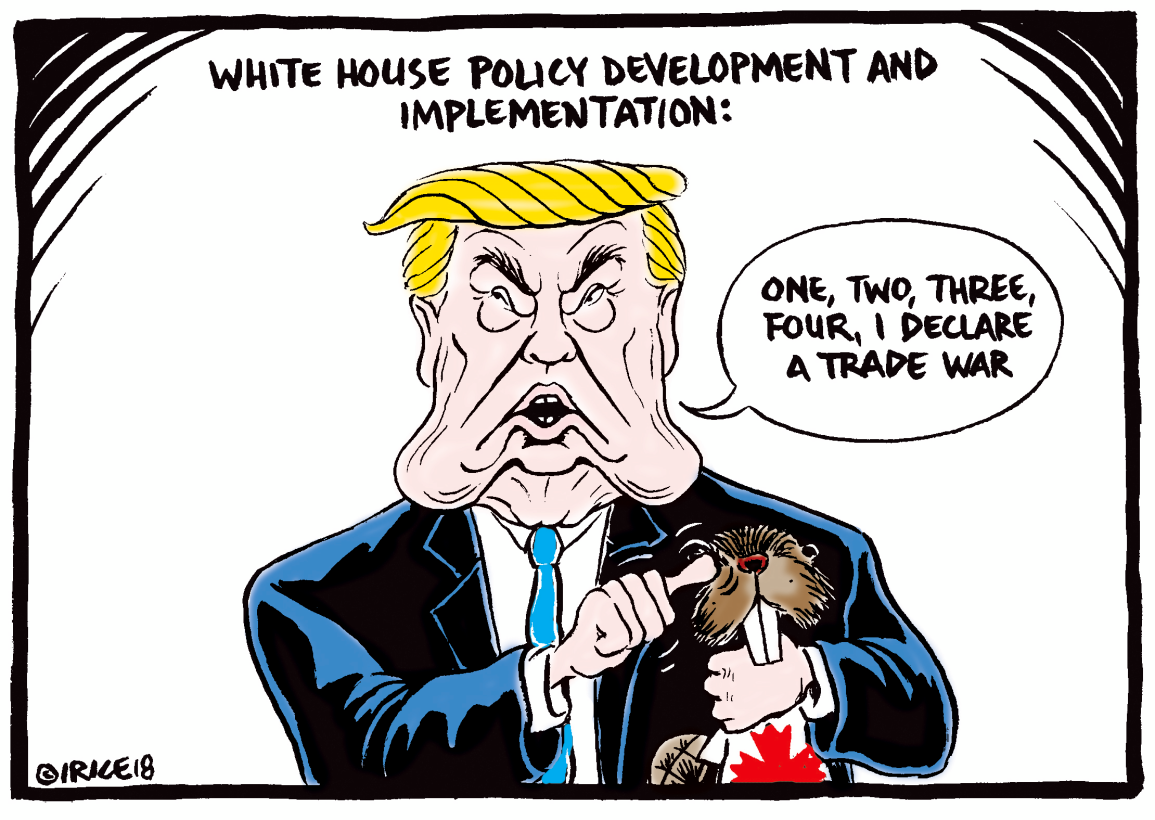
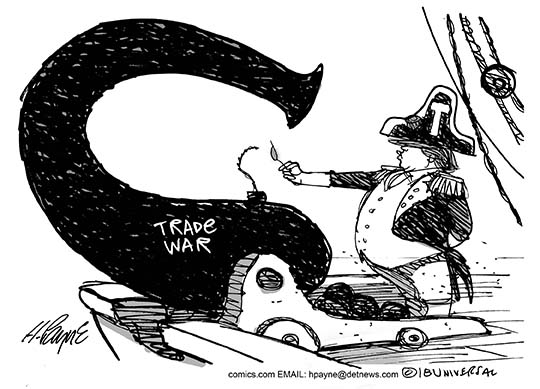
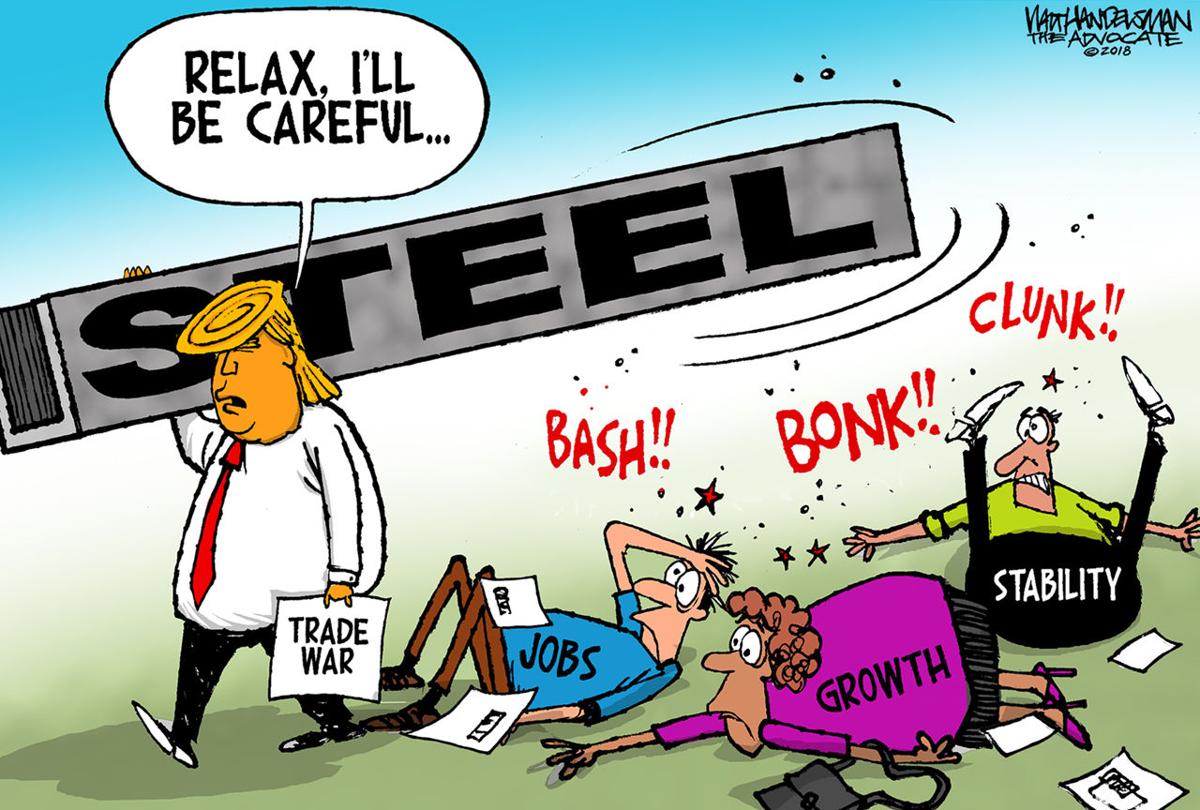
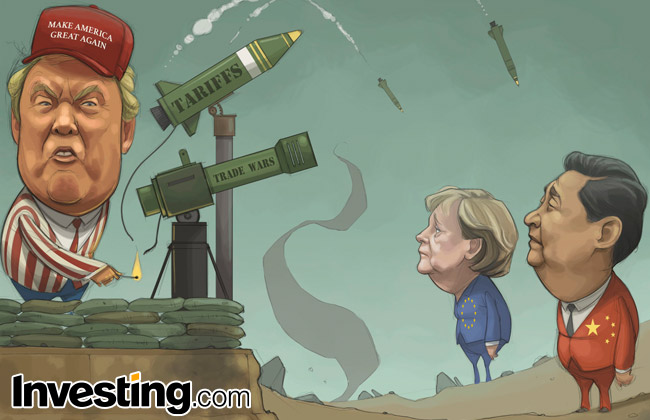
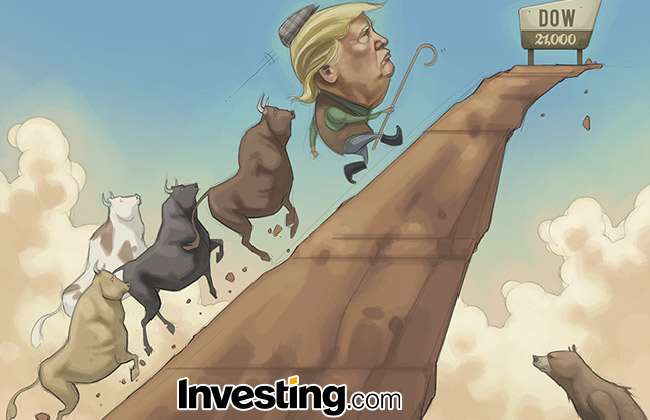
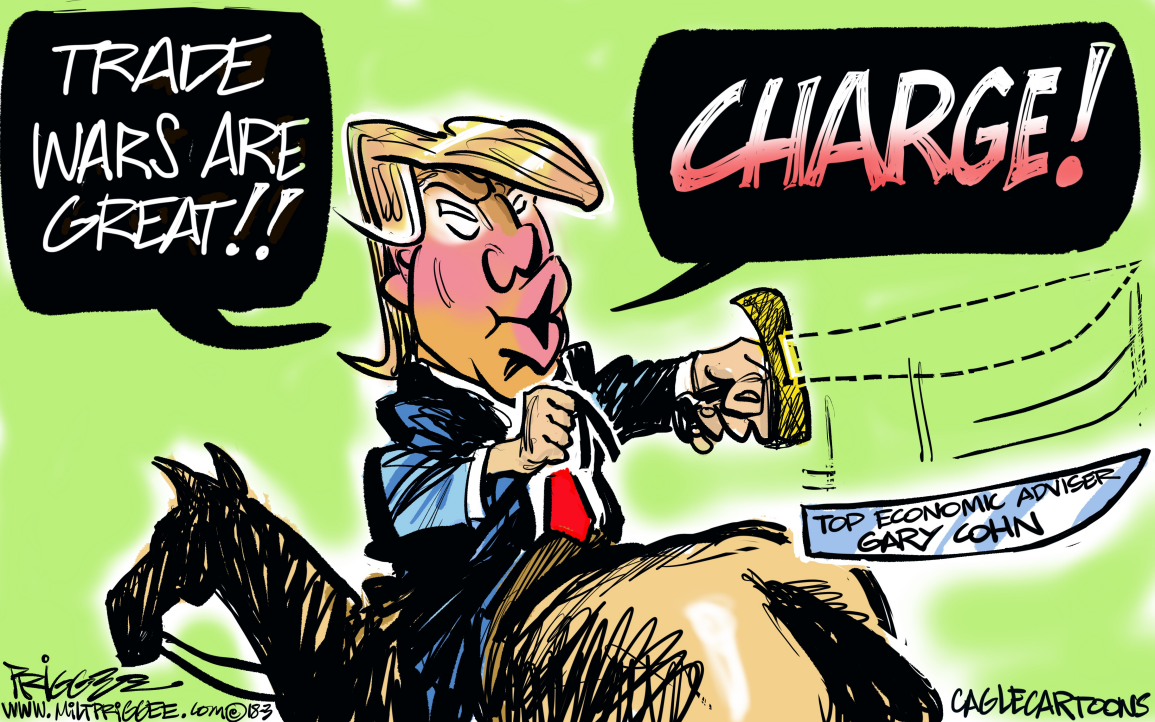
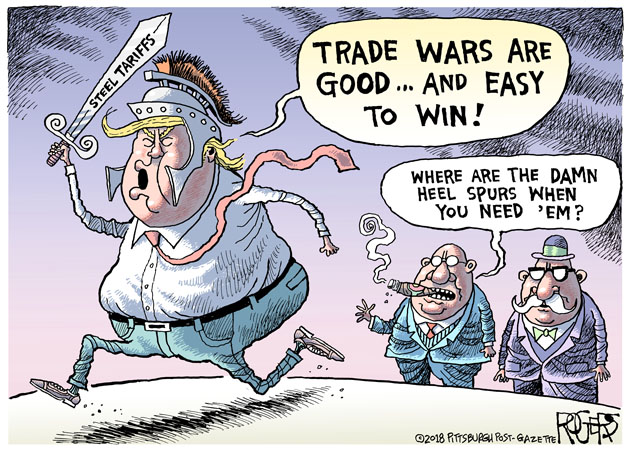

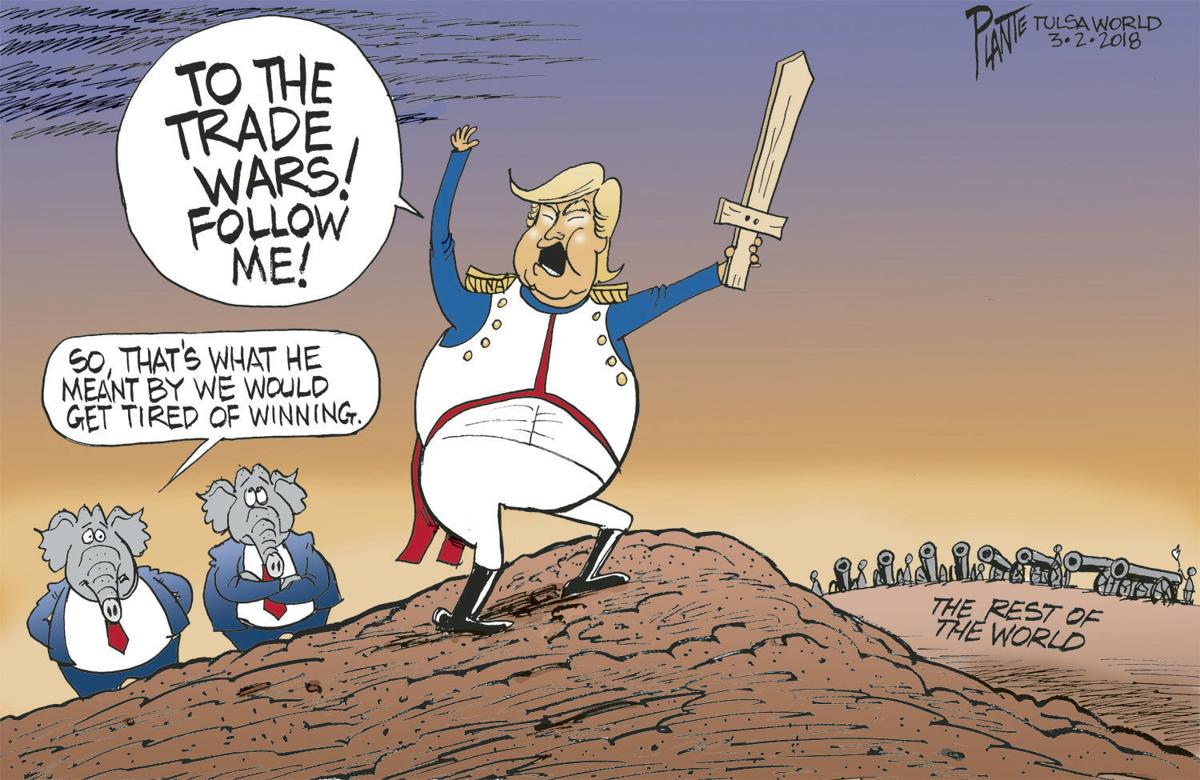



 Chinese tariffs hitting US where it’s most vulnerable – farming
Chinese tariffs hitting US where it’s most vulnerable – farming 

 China holding Treasuries ‘nuclear option’ open in trade war with US
China holding Treasuries ‘nuclear option’ open in trade war with US  South Korea, US kick off joint military drills after month-long delay
South Korea, US kick off joint military drills after month-long delay